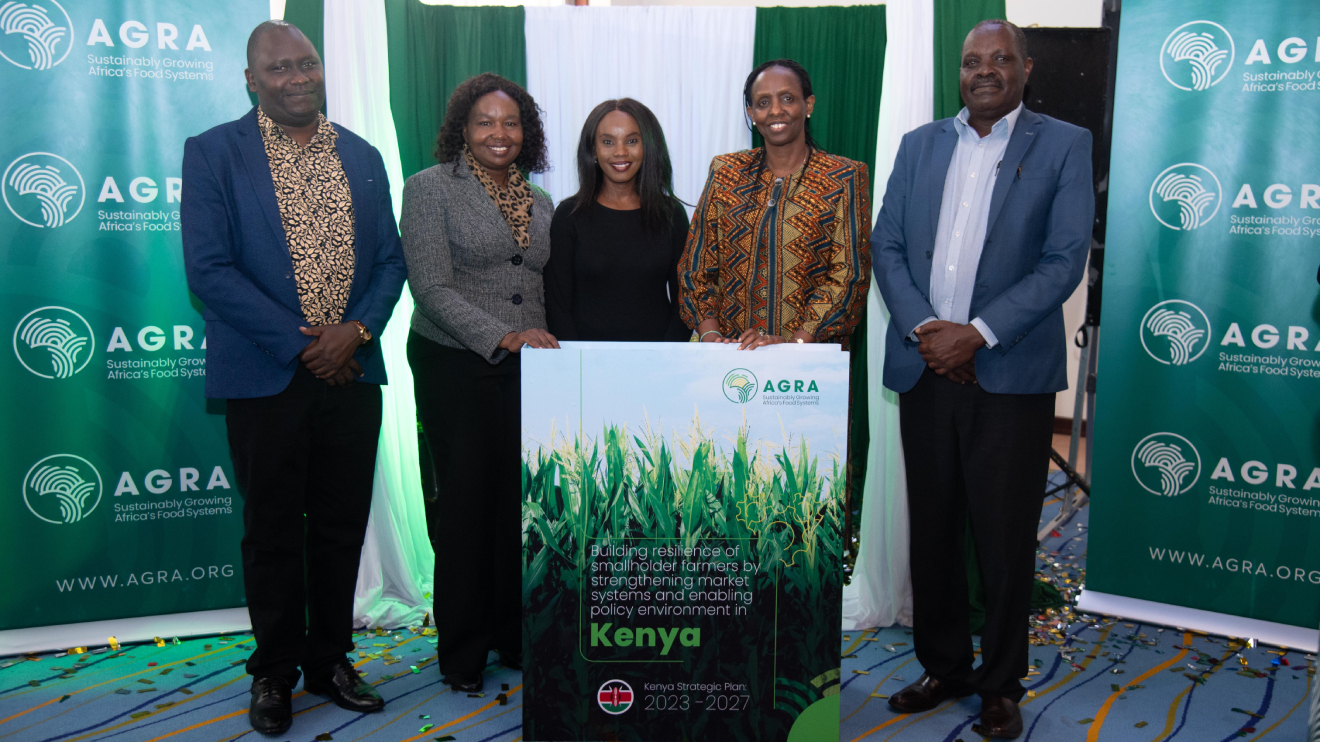In a bid to enhance food security and build the resilience of smallholder farmers, the Alliance for a Green Revolution in Africa (AGRA) has launched its Kenya Strategy.
The 5-year strategy, aligned with Kenya's Vision 2030 blueprint for long-term development, aims to transform the country into a newly industrializing, middle-income nation.
Building on the achievements and lessons from the Agra 2.0 strategy, the newly unveiled plan focuses on addressing key challenges facing the agricultural sector.
Agnes Kalibata, AGRA President, highlighted the strategy's core objectives, stating, "Our delivery model will continue to scale and leverage proven approaches to deliver a competitive and inclusive agricultural transformation in Kenya. We are committed to working closely with smallholder farmers, the private sector, and other stakeholders to enhance food security and build the resilience of the agricultural sector."
The agricultural sector has traditionally played a crucial role in ensuring food security, job creation, income generation, foreign exchange earnings, and linkages with other sectors of the economy in Kenya.
Read More
Despite significant efforts by successive governments, the sector still faces challenges such as weak vertical integration due to unpredictable weather patterns and recurring insecurity, particularly in the Arid and Semi-Arid Lands (ASALs).
These challenges continue to pose significant threats to the country's overall economic progress.

Mithinka Linturi, Cabinet Secretary for the Ministry of Agriculture and Livestock Development, emphasized the Kenyan government's commitment to strengthening long-term resilience and increasing investments in agricultural capacity.
"Public-private partnerships have the potential to revolutionize food security in Kenya by combining the strengths of both sectors to create sustainable solutions that benefit the entire population," Linturi said.
The Ministry of Agriculture and Livestock Development will spearhead the implementation of various programs aimed at improving agricultural productivity, food and nutrition security, value chain development, market access and trade, climate change adaptation, and the policy and legal framework.
The ultimate goal is to ensure 100 per cent food and nutrition security while contributing to income and employment creation in a secure environment.
Recognizing the wide-ranging nature and complexity of the challenges facing smallholder farmers in Africa, AGRA views strategic partnerships as a key pillar of its strategy.
These partnerships aim to align government priorities with private sector interests, thereby improving impact at the smallholder farmer level and mobilizing private sector investment for scale.
In line with this vision, the Partnership for Inclusive Agricultural Transformation in Africa (PIATA) was launched in 2017 as a platform for mobilizing strategic partnerships to transform agricultural systems.
Through PIATA, AGRA seeks to drive integrated delivery within agro-economic zones and across value chains.
This approach enhances in-country coordination and deepens engagements with the private sector, ultimately transitioning African agriculture from subsistence to sustainable business occupations.
With the launch of the Kenya Strategy, AGRA and the Kenyan government are embarking on a collaborative journey towards a more secure and resilient agricultural sector.
By focusing on market systems strengthening, climate change adaptation, and disease monitoring, the strategy aims to create sustainable farming practices that will secure the country's food supply and contribute to its long-term development goals.












